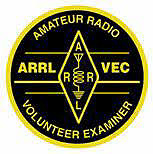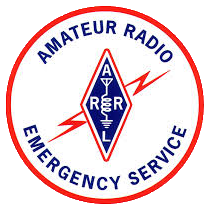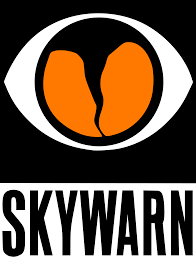Amateur Radio and Public Safety have changed a lot through the past few decades. As population densities increased and the impact of fires and floods impacted a larger group of people, larger metropolitan areas began developing procedures to enhance their ability to respond.
Ultimately, systems developed as a result of major fires in California were refined and adopted by many states, and ultimately the federal government. FEMA now provides a standardized set of training programs that standardizes protocols at the local, state, and national level, without inhibiting the local government's ability to retain control of operations.
The new standard protocol, called the Incident Command Systems, or ICS for short, is taught across all the above mentioned layers of government and non-government organizations (or NGOs for short), who would respond in an emergency.
Despite the push for standardization and inter-agency communications, virtually every agency had its own communications gear and frequencies that were generally not compatible. This remained true even into the 2000s.
September 11th, 2001 and Hurricane Katrina largely put an end to territorial arguments, and the push was on to allow inter-operability between agencies. That task has largely been accomplished. Additionally, the various agencies routinely engage in training exercises together. Finally, NGOs have ramped up their FEMA training and participate in exercises with these government entities. So why does this matter to amateur radio?
There are two reasons. First, the trained professionals who train together develop a level of trust, while anyone else will be seen with a bit of suspicion. Additionally, the development of inter-agency communications ability means the need for amateur radio operators to act as a bridge between them has been eliminated.
While some still pay lip-service to the old model and there are still smaller government entities that do not have the resources to upgrade, for the most part our mission in Emergency Communications will naturally change. Regardless of the mission change, we will still need to interact with emergency management professionals who expect the people they work with to know the terminology, understand the chain of command, and understand the protocols they use.
The days of showing up with an HT are over. If we can't demonstrate we can conduct ourselves with a level of professionalism we will never be called upon in an emergency. The argument "They'll call us if they get desperate enough" rings hollow, as there will be no process for contacting us, and by the time it appears "they need us bad enough" it'll be too late to do anyone any good.
Emergency Management will deploy those they train with. An emergency is no time to experiment, so the first step is to develop our skills to the point we can potentially participate in exercises with the professionals, so we can learn how to interact with them and build confidence in our abilities.
So what does this mean? Those of us who can be deployed need to ensure we've taken the FEMA courses which are free and will be discussed in coming weeks. Those who can't deploy can serve as net control and traffic passing stations, who will require fewer FEMA training courses.
Our efforts are already paying off with the Hospital Team. Those who trained and qualified to serve are regularly interacting with staff there, and we will be participating in exercises with them.
We now need to expand on that so we're prepared to work with the county and local municipalities. We'll be discussing that in future nets.




